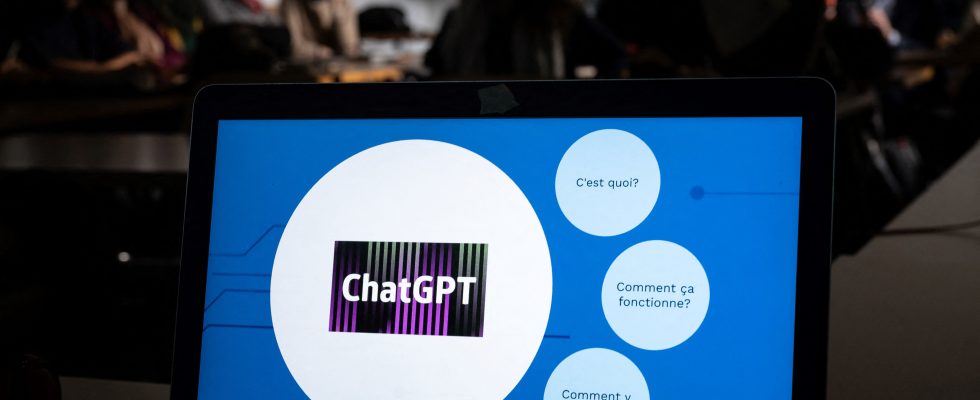The drifts will not be long in coming. On November 30, ChatGPT hit every computer on the planet. A short month later, a teacher at the University of Lyon, out of 14 copies corrected during an exam period, counted half of them made thanks to the conversational agent. A few weeks later, in Strasbourg, about twenty students were forced to retake a test on the history of Japan, due to another collective fraud. These cases, certainly not isolated, prove that a generative artificial intelligence, from its beginnings, could satisfy a good number of duties. The update of ChatGPT, thanks to GPT-4, in the spring, has accentuated the phenomenon: this great language model passes the American bar exam with flying colors, and many other tests in mathematics, sciences… Institutions are trying to react. Sciences Po, for example, authorizes it on the condition of citing it, and not in examination. But the revolution promises to be much more impactful.
“Artificial intelligence tools must lead to rethinking the student’s personal work”, admits the Ministry of National Education, in a response formulated on June 22 to a question from Senator Hugues Saury on ChatGPT, which has become the elephant in the middle of the room. Some ideas: “initiate or support creativity as the first basis for writing a text or code, optimize an editorial task, propose neutral argument to be deconstructed and criticized, have instructions reformulated or even ask students to check the content and relevance of the answers provided…”, continues the administration. The list is not exhaustive. “Finally, what ChatGPT pushes us to do is invest in the skills of the 21st century, those that distinguish us from the machine. With also more oral, more collaboration, exploration, projects”, deciphers Bastien Masse, director of Class’Code, an association which provides free educational materials for all, also project manager within the Unesco RELIA chair (Free Educational Resources and Artificial Intelligence), at the University of Nantes.
What some are already doing in higher education. “Half of our teachers have included generative AI in their pedagogy”, informs Anthony Hié, director of digital transformation within the private higher education group Excelia, based in La Rochelle. By directly using tools like Dall-E or Midjourney, for image generation, decrypted in progress, or Chatsonic, to build arguments. Then, by overturning the evaluation methods, by putting an end to the basic knowledge questionnaires. All disciplines combined, students and teachers receive training in quick (to the commands that we give to the AIs; Editor’s note). “This skill will be useful tomorrow in a large majority of professions”, explains Anthony Hié.
Tailor-made content, automation…
Unsurprisingly, for secondary (college and high school), or even primary – if these tools are deployed there one day – this effort promises to be more difficult. “Several structural constraints persist before adapting to AI: the time of teachers, the cost of training, inequalities of access to tools among students…”, points out Bastien Masse. The use of a ChatGPT, which does not cite its sources, sometimes hallucinates, whose compliance with the GDPR is still discussed, is not necessarily encouraged for the time being. Even if, somewhere time is running out. “The risk of waiting for the perfect AI tool is to lose the social contract between students and teachers. ‘Why am I learning this’, a student might wonder, when ChatGPT already knows how to do it”, regrets Bastien Masse.
The promises of generative AI, in the long term, however, remain enticing. “This technology will finally make it possible to move towards specific content, tailor-made for students”, explains Romain Morvant, creator of the start-up Corolair, specializing in education. The personalized tutor recently launched by Harvard for its computer science students, baptized CS50, like the name of the course, available 24 hours a day, 7 days a week, symbolizes this dream of “adaptive learning” or “adaptive learning”.
It should make it possible to solve a certain number of small questions or problems related to the education followed, without overloading the teachers. For the latter, the AI promises to automate “their administrative tasks, to optimize the creation of their courses and their exercises”, adds the entrepreneur, who himself offers this kind of service. The free time could be allocated to tutoring, requiring empathy, sensitivity, listening. Exclusively human qualities, a priori, for many more years.
